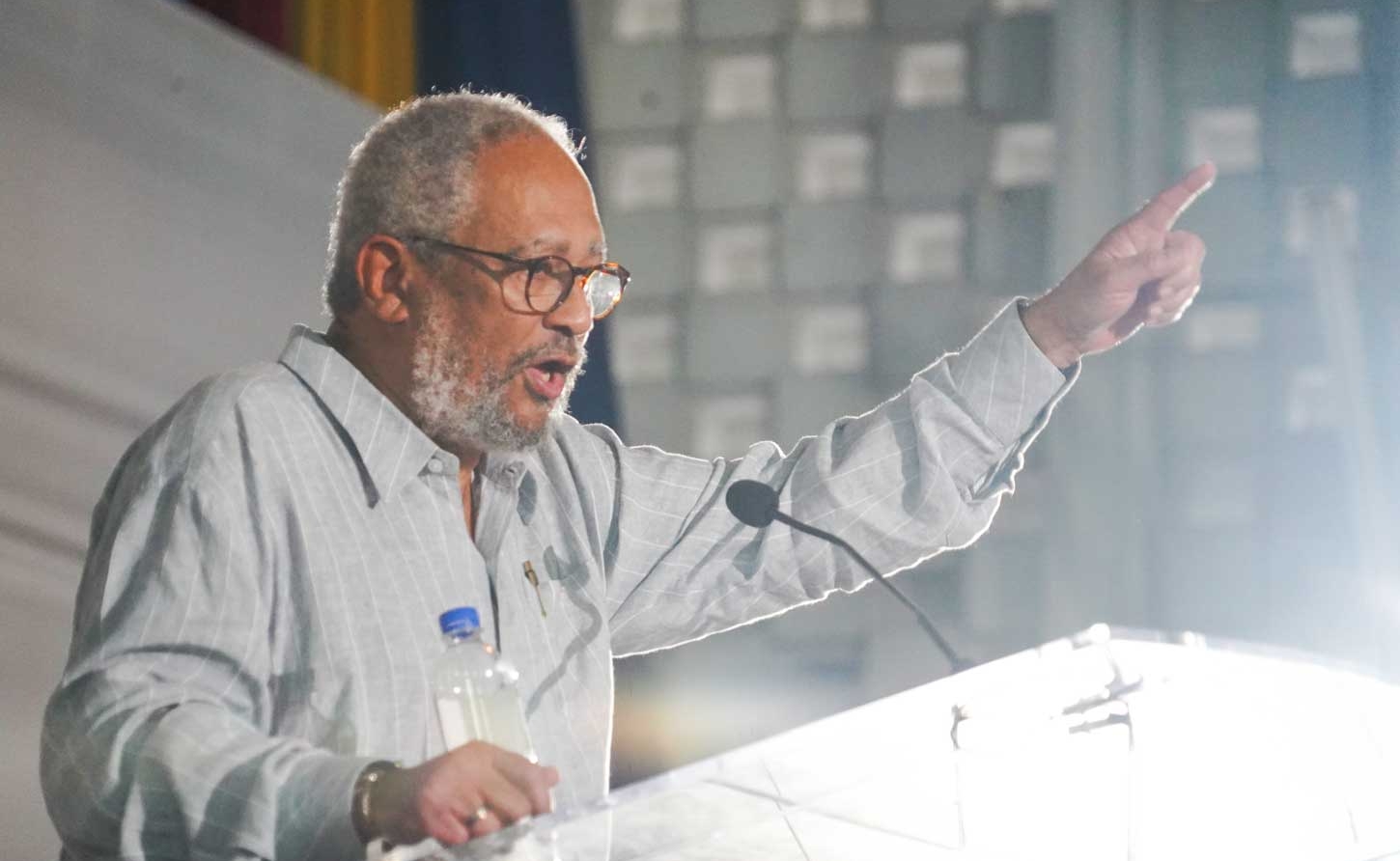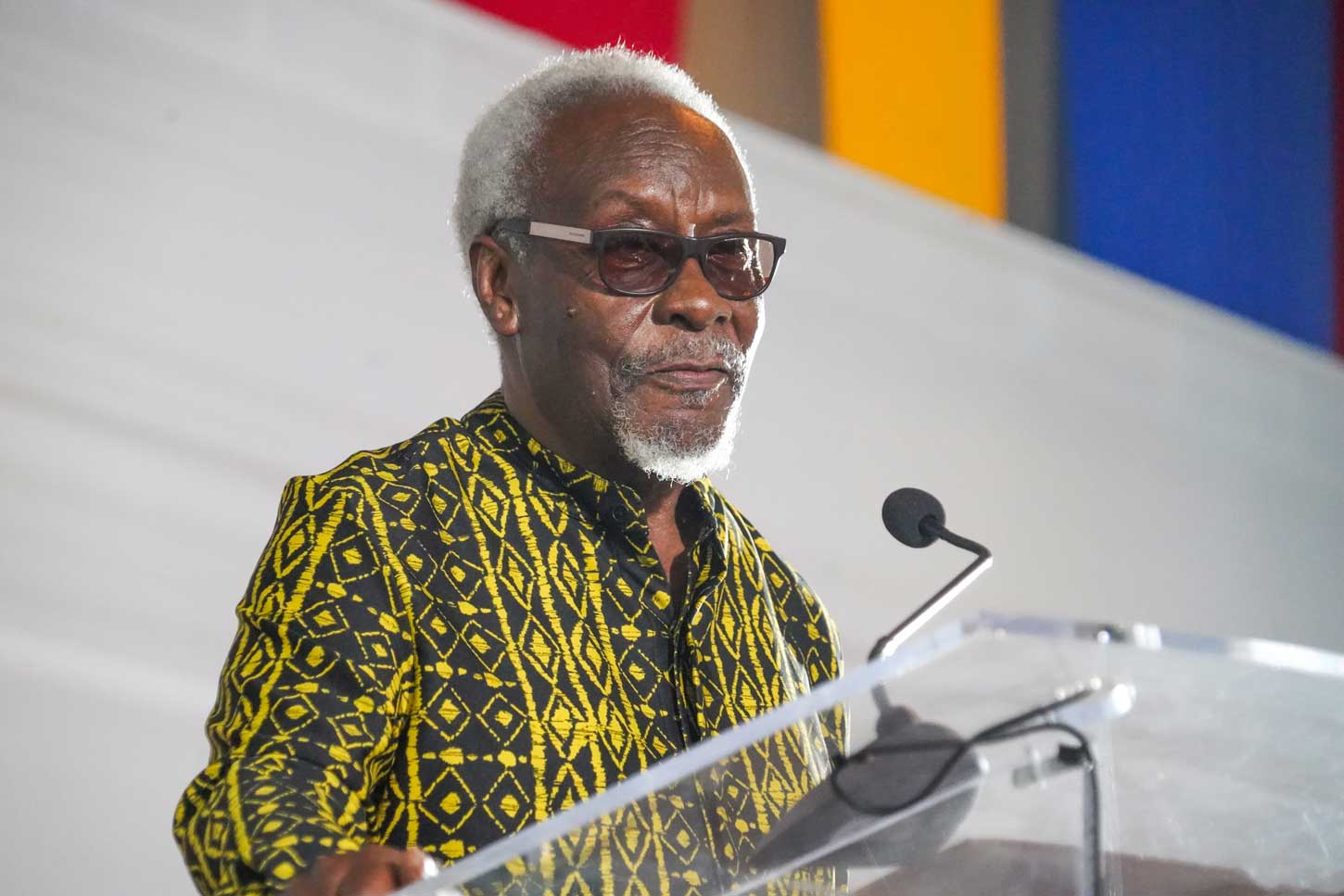JAMAICA | Culture is Not a Brand: Professor Bogues Challenges the Marketing of the Caribbean’s Soul

KINGSTON, Jamaica, February 4, 2025 – Culture is not a brand. It is a living, breathing tapestry woven from centuries of resistance, creativity, and the relentless pursuit of dignity. This was the resounding message from Professor Anthony Bogues, ASA Messer Professor of Humanities and African Studies at Brown University, as he delivered the third annual Rex Nettleford Distinguished Lecture at the University of the West Indies (UWI).
In an era where Caribbean identity is often reduced to a marketable asset—sold in tourism campaigns, music festivals, and corporate branding—Bogues challenged this narrative, urging a deeper understanding of culture as the very foundation of Caribbean civilization.
"Everywhere I go in Jamaica, I hear people tell me about the Jamaica brand," he remarked. "It may be used for marketing, but culture is not a brand."
Rather than viewing culture as a commodity, Bogues presented it as a force of historical continuity—one shaped by maroon resistance, artistic innovation, and the everyday struggle for dignity.
Drawing from the works of Caribbean intellectuals like C.L.R. James, he positioned anglophone Caribbean people (as distinct from Cuba and Haiti ) as inherently rebellious but not necessarily revolutionary.

From Trinidad’s steel pan to Jamaica’s reggae, from Cuba’s Afro-religious art to the literary works of Martinique’s Aimé Césaire, Bogues underscored how Caribbean culture has historically emerged from below—shaped by ordinary people rather than elites.
This, he noted, aligns with Rex Nettleford’s idea of culture as a "battle for space"—a means of asserting identity and agency in societies historically structured by colonialism and economic marginalization.
Challenging Neoliberal Narratives
At the heart of Bogues’ argument was a critique of the way modern economic frameworks, particularly neoliberalism, have attempted to redefine human culture in market terms. He pointed directly at the Washington Consensus—a set of economic policies that prioritized free-market reforms across the developing world—and its tendency to reduce people to "commodities of desire."
This logic, he argued, extends into the commodification of culture itself, where Caribbean identity is packaged for international consumption rather than understood as a dynamic, evolving force of history.
Bogues evoked Rex Nettleford’s belief that intellectual and creative innovation does not reside exclusively in the academic halls of Harvard, Chicago, or the London School of Economics. Instead, he argued, it thrives in the everyday cultural expressions of Caribbean people—expressions that have historically been dismissed as peripheral but are, in fact, central to the region’s identity.
He positioned this argument within a broader historical framework, illustrating how cultural creativity preceded and fueled major anti-colonial movements. From Barbados’ BIM magazine to Jamaica’s Focus, from Cuba’s avant-garde art to Haiti’s Indigenous Movement, the cultural awakening of the mid-20th century laid the groundwork for political decolonization.
He pointed to the pivotal 1956 First Black Writers and Artists Conference at the Sorbonne in Paris, where intellectuals like Césaire, Barbados’ George Lamming, and Haiti’s Jean-Price Mars forged a declaration affirming African and diasporic culture as essential forces of liberation.
Culture as the Bedrock of Liberation
Bogues emphasized that true decolonization is as much a cultural act as it is a political one. Citing Frantz Fanon and Amilcar Cabral, he argued that liberation is not merely about achieving political independence but about reclaiming the historical and cultural consciousness of a people.
He described this process as the "re-Africanization of the African soul," an ongoing struggle to resist cultural erasure and assert a distinctly Caribbean identity rooted in African traditions, yet uniquely shaped by the region’s historical experience.
This view stands in stark contrast to the contemporary push to brand Caribbean culture as a global product. Bogues warned against allowing economic forces to dictate the meaning and value of Caribbean identity, stressing that while economic development is important, it must not come at the cost of cultural integrity.
"The danger," he noted, "is that we lose sight of what culture actually means—of the historical struggles and creative energies that have shaped it—by reducing it to a mere selling point."
A Legacy of Resistance and Creation
In a moving appeal to the gathering, Foundation Chairman the Most Hon. P.J. Patterson called for generous donations to support the Foundation's vital mission. "Support scholars and programs that strengthen West Indian society in the areas of social and cultural development," he urged. "We will continue to give bursaries to produce young leaders who grasp the importance of public service. We will be able to support students who have a desire to protect the weak, and who will use their energies and talents for the betterment of humankind."
The lecture, delivered on what would have been Professor Rex Nettleford's 92nd birthday, was attended by a distinguished audience spanning academia, the arts, the private sector, civil society and sponsors Sagicor.
Among those present were the Most Honorable P.J. Patterson, Chairman of the Rex Nettleford Foundation, Professor Densil Williams, Principal of UWI, and Mr. Milton Samuda, Chairman of the National Dance Theatre Company (NDTC). Political leaders such as Leader of the Opposition Mark Golding and former People’s National Party leader Dr. Peter Phillips also joined the gathering, reflecting the broad impact of Nettleford’s intellectual and cultural legacy as well as well as Daidre Sloley-McKay and Chorville Johnson-Vaughn of Sponsors Sagicor.
Bogues closed the evening with a haunting invocation of Caribbean history, reciting lyrics that spoke of forced displacement and survival: "Sacred babble tree, lost your children to the sea. Taken from the land, many rains are gone."
Yet, while acknowledging the painful past, he also celebrated the region’s enduring cultural vitality. The Caribbean’s creative spirit, forged in struggle and defiance, remains one of its greatest assets—not as a brand, but as a force of history, identity, and liberation.
-30-

 En
En  Ar
Ar